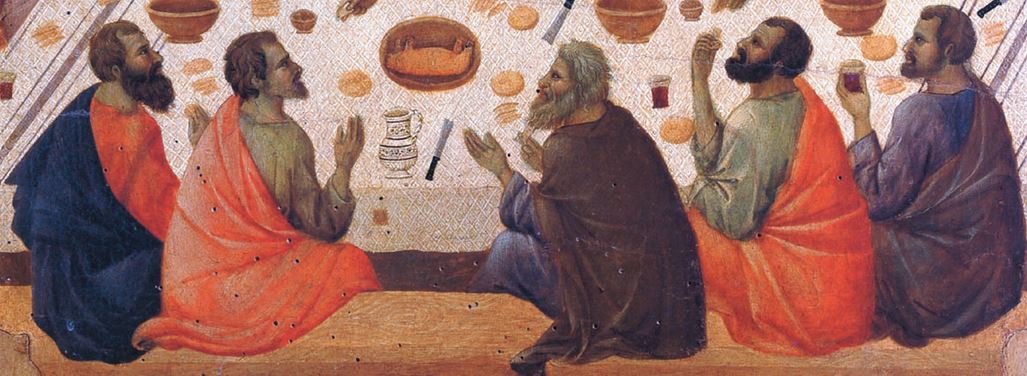The description of Peter – who had only recently insisted that he would follow Jesus to the death if necessary (John 13:37) – as following at a safe distance after Jesus’ arrest is one of the most unflattering stories in the New Testament. When the “chips were down,” Peter did not stick with the One he acknowledged as the Christ; though later, after his empowerment by the Spirit of God, he did, of course, follow Jesus to the end.
There are two aspects of what Matthew says about this event that we can apply to ourselves – two ways that we too can fail in following. First, we see that Peter “followed him at a distance.” Do we do this in our lives? If we are only partially involved in our religious beliefs, if we think of our religion as only what we do in church, and not in our everyday lives, we are certainly following Him at a distance.
But there is also another type of distance following. We can fail to follow closely in time as well as in space. Notice that when Peter followed Jesus to the high priest’s courtyard he then “sat down ..to see the outcome.” Do we wait to see the outcome of things before committing ourselves to following more closely? That is the attitude of millions of people through history who have attempted to strike a bargain with God: “If you will do this – rescue me, heal me, help me or whatever – I will do better, follow you more closely.” Although God may sometimes intervene to answer sincere prayers of this type, we must beware of putting off obedience until God has “done His side of the deal.” We can do this, for example, by waiting till we feel our finances are in order before helping others, or in countless other ways. Although we may feel we are sincere in these things, it’s really just following at a safe distance. We need to be following in the here and now.
It helps to remember that “Follow me” was Jesus’ first command to his disciples (Mark 1:17), and it is also his last recorded command in the Gospel of John (John 21:19). Significantly, it was to Peter that Jesus addressed that command, and repeated it, after his resurrection (John 21:21), though it clearly applies to every disciple. Peter had to learn, and be reminded, that following Jesus and saying we are following Jesus are not the same – and that following at a distance is not really following at all.
It’s a lesson we all need to remember at times, because God wants real followers rather than those of the “distant” or “eventual” type. We see this in the Old Testament where God says: “Because they have not followed me wholeheartedly, not one of those who were twenty years old or more when they came up out of Egypt will see the land I promised …” (Numbers 32:11). We see it throughout the New Testament where numerous people failed to follow because they wanted to follow later, or at a distance: “[Jesus] said to another man, ‘Follow me.’ But he replied, ‘Lord, first let me go and bury my father’ …. Still another said, ‘I will follow you, Lord; but first let me go back and say goodbye to my family’ ” (Luke 9:59-61).
The whole point of following is really to follow as closely as possible. Jesus was explicit about this, saying: “Whoever serves me must follow me; and where I am, my servant also will be” (John 12:26). That clearly implies following by walking with him rather than following at a safe distance.
* * *
You may like the latest blog post on our Tactical Christianity website here.










 RSS Feed
RSS Feed
